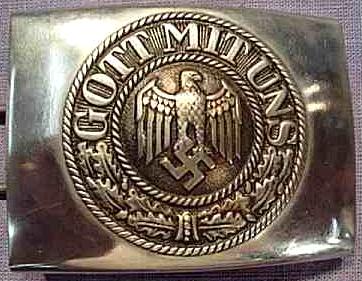Thoughts on Peace
Jesus never condemned anyone for being too compassionate. God can handle the justice part. (James 2:13)
When Jesus said “turn the other cheek” he knew the next blow could be fatal. He also knew it risked an emboldened enemy moving on to other victims.
Jesus didn’t come to bring us common sense. We already had that.
True Christianity is truly inconvenient (and counter-intuitive).
Overwhelmingly, non-Christians see Jesus as a pacifist and are disgusted by Christians who don’t. This is a great stumbling block for non-Christians.
We think others commit “big” sins while we commit only “little” sins. Do non-believers who appear to be good people and commit only “little” sins just need Jesus a “little” bit?
Christians seem to believe Jesus’ commands are applicable up to a point, after which they are unrealistic and unsustainable. I agree with Job that, “yet though He slay me will I serve Him.”
The majority of Christians want to stay out of heaven as long as possible. At the very least, they feel entitled to stay out for at least 70 years before having to spend the rest of eternity with God.
Especially love your mortal enemies. They can send you on to heaven sooner than you expected to get there. We exist at the pleasure of God. When and how we die is up to Him.
A prime example of the results of “End Justifies the Means” thinking:
“Mr. Nash said Laos is the country most saturated with unexploded cluster munitions, including types that attract children because they look like “little baseballs.” They are a legacy of United States bombing of the Ho Chi Minh trail during the Vietnam War.”
I would suggest that for God, it is the means that justify the end.
The fact that God views hating your brother the same as killing him suggests that His perspective on murder is different than ours. Hatred = Murder. Who among us has not hated?
All who are not reconciled to God are His enemies and worthy of death, including you and I before our salvation. For some reason God does not reveal to us those people who will never submit to Him; otherwise we could just hate and kill them and focus our love on the rest.
Regarding the notion that war brings peace: wars fought to certain victory always bring peace, whether won by the “good guys” or the “bad guys.” Everyone who uses violence wants to establish peace – on his own terms.
When we become Christians we give up some luxuries that non-believers continue to enjoy. One of those is the “right” to kill others to protect our Pleasant American Lifestyle (PAL) as defined by freedoms and prosperity. Killing for our PAL can be justified on political, economic or Humanist grounds but there is no Christian justification for it. Neither Jesus nor his Apostles would have killed to maintain their lifestyles or their lives.
Christians are commanded to give aid and comfort to their enemies (Rom 12:20).
The legacy of Constantine is the belief that the Christian response to provocation can be the same as the world’s and that God’s stamp of approval is on it. Christianity has morphed into a force believing it has a mandate from God to help the state eradicate the “evil” people of the world. Many Christians are deceived into believing they are neutralizing the enemies of God, while in reality, they are ignoring Christ’s commands regarding enemies in order to neutralize their own enemies.
Jesus never suggested that we need to be in a never-ending struggle to exterminate wicked people.
“Men never do evil so completely and cheerfully,” commented Blaise Pascal, “as when they do it from religious conviction.”
Did Jesus regard self-preservation a high priority for himself or his disciples? Did the martyrs fail to get the word?
Many Christians believe murderers are unredeemable – doomed to hell. They would have killed Moses, David and Saul of Tarsus.
“There is no reason to imagine that we cannot overcome torture, war, hyper-nationalism, vengeance, and retribution.”- David Swanson, afterdowningstreet.org
It’s pretty sad when atheists sound more like Christians than many Christians.
If you want to fight back, you shouldn’t be a Christian. You should try some other religion.
The Christians’ proper response to oppression from others is forbearance, not violence.
Seek justice for others without demanding it for yourself.
When used in reference to the military, the word “fight” is a euphemism for “kill.” Schoolboys fight; soldiers kill. For example, fighting for democracy is actually killing for democracy.
Many Christians follow a Christianity that supports their worldview.
The best defense against terrorism is to not be terrified.
One thing America has in common with its enemies: the conviction that if we just kill enough people the world will be a better place.
Americans, by and large, are better suited for Judaism. Jews are not required to love their enemies.
Many Christians like to cite the Canaanite genocide (when God commanded the Israelites to slay every living thing among the enemy) as precedent for God’s endorsement of war. Does this mean that, throughout history whenever an army has taken to the field, God smiled? Was He pleased when Germany invaded Poland in 1939, beginning a rampage of conquest? Or does the Canaanite example only apply to the United States? Is there any scripture to support the view that the US is the “new” nation of Israel? Recall that it was a sin for the Israelites to not kill every living thing among the enemy. Throughout our history we have never done that and we would condemn any nation that did.
Acts 10 tells the story of Peter’s encounter with Cornelius the centurion. Before this encounter, Cornelius and his devout soldier likely were gentiles who worshipped the God of the Jews and served in a nearly all-pagan army of the pagan Roman Empire ruled by a pagan self-deifying emperor. They served the most powerful dictator in the world and could have been ordered to kill any enemies he wanted destroyed. In order to use this story to justify Christian service in the military we would have to concede that, throughout history, it has been permissible for Christians to serve in ANY military, including those of Germany and Japan in WWII. Assuming that Christians serving in the military are authorized by God to kill enemies of the state, then it was appropriate for German and Japanese Christians (yes, there were some) to kill Americans and that God expects Christians to kill each other in war. (During the Viet Nam war, one of John McCain’s North Vietnamese prison guards in the “Hanoi Hilton” was a Christian.)
We don’t know if Cornelius ever killed anyone after his baptism of the Holy Spirit or if he even stayed in the military. Two who didn’t stay were Martin of Tours and Marcellus the Centurion (who was martyred for putting Christ above the state). Maximilian of Tebessa was also martyred – for refusing to join the army as a Christian. The idea that just because an earthly ruler wants some people killed that God also wants them killed and wants Christians to participate is surely questionable.
Luke’s account of Jesus and the Centurion differs from Matthew’s in that Matthew has the two meeting face to face while Luke has them communicating through intermediaries. Regardless, like everyone Jesus encountered, the Centurion was not a sinless person. Yet Jesus did not bring the man’s sins to his attention and admonish him. Jesus focused on the positive here and commended him for his faith. It is likely the Centurion’s servant was a slave, but Jesus didn’t ask him to free his slave. We’ll never know what Jesus would have said if the Centurion had asked him, “Lord, as a soldier of the Empire, the enemies of my pagan master - the Emperor - are also my enemies and I am duty-bound to kill them. Yet you have said we must love our enemies. What should I do?”
There is no evidence of Jesus striking any people when he cleared the temple. He would have been arrested for that.
Nowhere in the book of Revelation are we commanded to kill anyone. Nowhere in the entire New Testament does Jesus or Paul even suggest that a follower of Christ should kill anyone for any reason.
What would God do if all Christians obeyed Christ and loved their enemies instead of killing them? Would He be powerless to stop the servants of Satan from taking over the world? If not, He doesn’t need Christians to disobey Christ to save His creation. An answer is found in the first three centuries of the Church when it came closest to realizing the ideal of loving enemies - a rejection of violence that did not result in calamity for God. He doesn’t seem to be too concerned about it since He wants us to repay evil with good. Does that guarantee our personal safety? No. But if you’re willing to die for something Jesus never promoted – political freedoms – you should be willing to die for what was important to him – the kingdom of God. Let God decide whether to allow your enemy to kill you.
It is better to be a victim than a victimizer.
It is better to die than to kill.
It is better to die than to torture.
It is better to die in obedience to Christ than to live in disobedience.

